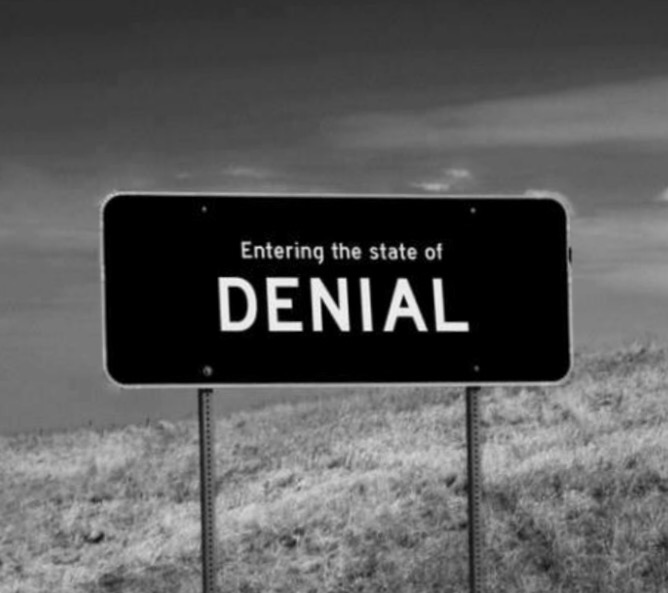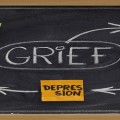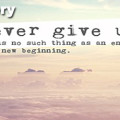
According to Merriam-Webster, denial can be defined as, “The refusal to admit the truth or reality of something.” Somewhere along the way, we have labeled denial a bad thing. If you are denying something, then you clearly aren’t dealing with it. The Stages of Grief, which has to date been considered the roadmap for grief, lists denial as the first stage that one goes through following the loss of a loved one. Before tackling denial, let me first take a minute to educate everyone on what The Stages of Grief were actually intended for. When Elisabeth Kubler-Ross first proposed the five stages in her book on Death and Dying, it came from her work with the terminally ill. These were the stages THEY went through prior to dying. Makes sense, right? Problem is, we now consider this to be the model for grief. We don’t know a lot about grief, but what we do know is that the stages do not provide an accurate depiction of grief following the loss of a loved one; especially suicide.
So, now that I got that cleared up it is on to denial. Can somebody tell me why denial is a bad thing? Like anything in life, if we immerse ourselves it in completely it becomes problematic. If we constantly deny that the suicide happened, then it can be problematic. However, if we don’t deny the reality of our situation, it can be nearly impossible to get through the day. Denying that the suicide happened in order to care for your children; denying the suicide so you can work; denying the suicide so you can get up in the morning…how are these bad? Sometimes we have to deny our reality in order to survive.
In the aftermath of a suicide loss, it is initially all about survival. Denial can be a one of our survival techniques. Do not let others tell you that you aren’t facing the reality of situation because you are in denial. Explain to them that you have to deny in order to survive. When you are ready, and feel strong enough, then you face your reality. And remember, it’s ok to not be ok.



Very good points! And nobody who has not experienced a suicide loss will ever be able to relate.
Today would have been Lucy’s 26th birthday. “If only she’d get to 26, ” I used to think; “then her brain would be more like a real “adult’s” and she could process her issues in life better.” “Just hang on, Lucy, it will be better soon!” I would offer to her as a real solution to her anger and mood swings, her frustration with LIFE. “I HATE Life!” she used to yell when something minor, or major, happened. “I’m going to kill myself one day!” That was the day a car rear-ended her– a real-life problem.
Lucy lived as long as she could, and took her life with a gun she purchased an hour prior. I was at the bottom of the steps, waiting to take our dogs for a walk with her, so that “we could talk.”
Today I sat on a blanket with her dog and some pictures and lots of flowers delivered to her grave today by an unknown friend. It almost looked festive. I realized one simple thing today: I deny that Lucy is dead. I just don’t try to think about how she felt in my arms that Monday morning in February.It’s just too painful. She’s just not here today. She went away for her birthday so I won’t see her for awhile. That’s how I get through my life without Lucy, my miracle child I had at age 40, the happiest day of my life. I just can’t believe she is really dead. Dead doesn’t equate with her beautiful big eyes-Lucy in the sky with diamonds, now THAT was her! I’ll just wait for the call to pick her up from the airport, so we can finally talk.
I forgot to write that Lucy died at age 23 and a half years old.
I agree, denial can play a part in surviving suicide loss. The complex emotional roller coaster and constant play back of conversations can make it difficult to move forward. Sometimes, we need to be able to step away from the reality, if only temporarily to allow us to cope when reality weighs us down.
Thank you for sharing this.
Using the term “Denial” makes me feel as if I am hiding from the truth. Reading this, I admit my coping strategy is “Denial”. I am not, not dealing with my grief but trying to change it into something more manageable than the indescribable pain of loss… I have convinced myself my boy is in Australia with his father.. Crazy I know 😢
Thank you for this. 8 years now and I am just now starting to come out of my denial about certain aspects of my loss of my late husbands suicide and coming to grips that life was not perfect together like I have thought it was for the 18 years of our marriage. I’m ready though, and everyone’s ready is their own, not anyone else’s.
I’m sorry Marcia.. your story touches my heart. Do whatever you need to each day to get through to the next. Your in my 💜
Thank you! I have been feeling guilty about my ability to move forward. Did I not really care about my son? No, I cared but I refused to let his death define my life. He was wonderful, but so are his siblings. If I only have time for mourning Joe, what message does that send to his older sister and younger brother? I love them all, but he chose to leave. He chose a final solution. I choose life.
I love denial! It helps me make it through the day! It gives me time to reflect on what Charlie’s days were like and what he should be doing. I can miss him still, but think that he is doing okay where he is at while I live in denial.
This is a lovely post. Thank you so much. About a month after my boyfriend completed I just let go….I let go of needing to grieve. People would say I had to, you better get to grieving, say that I was in denial. You know maybe I was, maybe I still am, but I have made joy my daily goal. I have two children and things I still want to experience. Thank you again….
Suzie